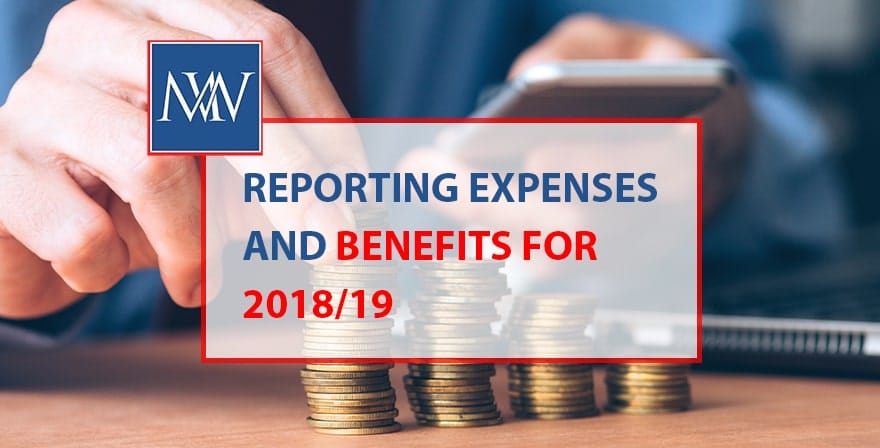
Reporting expenses and benefits for 2018/19
Where employees were provided with taxable benefits and expenses in 2018/19, these must
be notified to HMRC.
The reporting requirements depend on whether the benefits were payrolled or not.
Benefits not payrolled
Taxable benefits that were not payrolled in 2018/19 must be reported to HMRC on form
P11D. There is no need to include benefits covered by an exemption (although take care
where provision is made via an optional remuneration arrangement (OpRA)) or those
included within a PAYE Settlement Agreement. Paid and reimbursed expenses can be
ignored to the extent that they would be deductible if the employee met cost, as these fall
within the statutory exemption for paid and reimbursed expenses.
The value that must be reported on the P11D depends on whether the benefit is provided via
an OpRA, such as a salary sacrifice scheme. Where the benefit is provided other than via an
OpRA, the taxable amount is the cash equivalent value. Where specific rules apply to
determine the cash equivalent value for a particular benefit, such as those applying to
company cars, employment-related loans, living accommodation, etc., those rules should be
used. Where there is no specific rule, the general rule – cost to the employer less any
amount made good by the employee – applies.
Where provision is made via an OpRA, and the benefit is not one to which the alternative
valuation rules do not apply, namely:
payments into pension schemes
employer provided pension advice
childcare vouchers, workplace nurseries and directly contracted employer-provided
childcare
bicycles and cycling safety equipment, including cycle to work schemes
low emission cars (Co2 emissions 75g/km or less)
the taxable amount is the relevant amount. This is the higher of the cash equivalent under
the usual rules and the salary foregone or cash alternative offered. The taxable amount is
the cash equivalent value where the benefit falls outside the alternative valuation rules.
Payrolled benefits
Payrolled benefits should not be included on the P11D but must be taken into account in
calculating the Class 1A National Insurance liability on form P11D(b).
P11D(b)
Form P11D(b) must be filed regardless of whether benefits are payrolled or notified to
HMRC on form P11D. The P11D(b) is the Class 1A return, as well as the employer’s
declaration that all required P11Ds have been submitted.
Paper or online
There are various ways in which forms P11D and P11D(b) can be filed. The simplest is to
use HMRC’s online end of year expenses and benefits service or HMRC’s PAYE Online for
employers service. Forms can also be filed using commercial software packages.
There is no requirement to file P11Ds and P11D(b)s online – paper forms can be filed if
preferred.
Deadline
Regardless of the submission methods, forms P11D and P11D(b) for 2018/19 must reach
HMRC by 6 July 2019. Employees must be given a copy of their P11D (or details of the
information contained therein) by the same date. Details of payrolled benefits must be
notified to employees by the earlier date of 31 May 2019.
Class 1A National Insurance must be paid by 22 July where paid electronically, or by 19 July
where payment is made by cheque.
Need Accountancy Support?
For information on bespoke training, or if you have any other questions for Makesworth Accountant, please fill in your details below




















 150
150